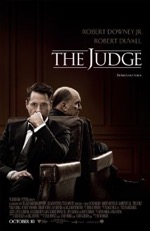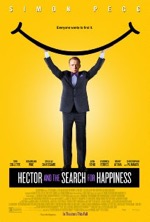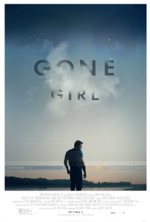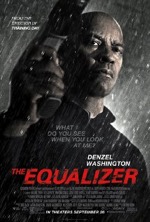October 2014
The Judge (R)
16/10/14 22:44 Filed in: 2014

Starring: Robert Downey Jr.
October 2014
This review was originally tweeted in Real-time from the back row of a movie theater and appears @BackRoweReviews. Though efforts were made to tease rather than ruin this movie’s memorable lines and moments, some spoilers may exist in the following evaluation. The original tweets appear in black, while follow-up comments appear in red. For concerns over objectionable content, please first refer to one of the many parental movie guide websites. All ratings are based on a four star system. Happy reading!

“Nothing changes.” Welcome to Small Town, USA.
I’ve lived in plenty small towns growing up and can attest to the above statement.
“Yeah” is not an appropriate affirmation for the court.
Nor anywhere else for that matter. It’s the lazy man’s yes.
Firefly bar non-fight. “Get counseling.”
However, even with the law on my side, I still don’t know that I’d tempt, by incessant browbeating, such lowlifes into throwing a punch at me. I guess such natural, rational, fears fail to register if you’re Iron Man.
“Narrate this!” Ha!
Billy Bob Thornton is the prosecutor. Uh-oh!
After watching his cold, calculating portrayal of a hit man in Fargo, I just don’t think I’d want to take him on, even though his character here is on the right side of the law.
Jury selection is humorous.
Fixing the sink. Nice cover.
Just think how awkward and uncomfortable this scene must have been to film for both men; hours of standing in a tub, au naturel in Duvall’s case. With this particular scene in mind, among many others to validate consideration, Oscar nominations for both actors seem all but assured. To withhold such recognition would be utterly absurd.
First driving lesson...a special scene.
Double hurl. Nasty!
Just another reason why you should never walk on the grass.
“I choose you.” Touching moment.
The best father/son reconciliation scene I’ve seen since Chris Cooper shows up at Jake Gyllenhaal’s rocket launch at the end of October Sky (1999).
Final analysis: a slowly-paced but meaningful father/son drama with powerhouse performances.
Rating: 3 out of 4. This movie represents a new career watermark for Downey Jr and Duvall. That’s my verdict.
As a patchwork of conventional narrative elements—estranged father and son (Ordinary People, Parenthood), Big City success story returning to country roots (Sweet Home Alabama, The Fighting Temptations) and the stress and strife surrounding a funeral (Elizabethtown, Death at a Funeral)—there’s nothing earth-shattering about this story. However, the run-of-the-mill material is elevated by the superlative lead performances by Downey Jr. and Duvall; in fact, the air in the theater is filled with static electricity every time they have a scene together. Their onscreen chemistry is undeniable, and you can just tell that working together brought out the finest efforts from both stars. Also buttressing the movie’s standard screenplay is a raft of fine supporting players, including: Vera Farmiga, Billy Bob Thornton, Vincent D’Onofrio, Jeremy Strong, Dax Shepard and Leighton Meester. The location work for Carlinville, Indiana (extensively shot in Massachusetts) is also exceptional and serves as an appropriate, all-American backdrop for the movie’s rather unusual court case. As for the courtroom scenes, they’re judiciously shot and, fortunately, never completely upstage the film’s familial frictions or relational revelations that surface at the most unexpected and least opportune moments. There are plenty of solid scenes in the movie, like: Strong’s home movies, Downey’s late night break-in to Farmiga’s bar and the heart melting scene when Duvall meets his granddaughter (Emma Tremblay) for the first time. Ultimately, though, the movie is held together by Downey and Duvall’s shared scenes, especially the ones where they just go at it like two bare fisted brawlers in a grudge match. The movie would’ve been just another middling family drama, like the ones frequently featured on Lifetime, were it not for the powerful presence of these megastars in career defining turns. Although the film’s length and pacing may be a deterrent for some audience members, this movie will probably satisfy those who enjoy well-acted dramas. You be the judge.
Hector and the Search for Happiness (R)
10/10/14 23:53 Filed in: 2014

Starring: Simon Pegg
September 2014
This review was originally tweeted in Real-time from the back row of a movie theater and appears @BackRoweReviews. Though efforts were made to tease rather than ruin this movie’s memorable lines and moments, some spoilers may exist in the following evaluation. The original tweets appear in black, while follow-up comments appear in red. For concerns over objectionable content, please first refer to one of the many parental movie guide websites. All ratings are based on a four star system. Happy reading!

Dogs don’t fly, Simon.
Don’t worry...the dog wasn’t hurt in the process of filming.
Two movies with Rosamund Pike in as many days.
As you can tell from my previous blog entry, I had just seen Gone Girl the night before watching this film.
“Cut the rope, Tintin.” Pegg goes off on a patient.
The Tintin reference reveals Hector’s status as a grown-up boy (a psychic patient of Hector’s actually sees him as a boy), but also prefigures his globetrotting adventures later in the movie.
Bumped up to business class. Down or memory foam?
I was bumped up to first class once on a very long flight overseas. There’s really nothing like it.
The mirror image inkblot for #4 is humorous.
This definitely reveals the id of the male gender. It’s the classic “Why have one when you can have two?” mentality.
Hector looses the scent of happiness atop a serene mountain.
Other than the arctic air, I definitely think I could be happy there for a while…jaw-dropping vistas.
#8 is vital...answer your calling.
Fulfillment is all about finding purpose in life. Actually, the quote at the top of The Equalizer (see my review) ties in rather nicely with this sentiment.
Must admit, I’ve never been successful at implementing #13.
I derive fun from watching movies and very short list of other activities. I know…I need to make an appointment to see Hector stat.
“Listening is loving.” A powerful principle and an emotionally impactful scene.
The sequence on the plane is the heart of the film, and is also the answer to the perplexing question Hector has pursued throughout the movie.
“Mothering with an S.” Ha!
“Emotionally squeamish.” Ouch!
Those who know us best can hurt us the most.
Final analysis: a journey of personal discovery marked by humorous and meaningful moments.
Rating: 2 1/2 out of 4. Not the comedy portrayed in the trailer but a feel-good flick.
Bored with the sameness of life, Hector (Pegg) embarks on a globetrotting journey to find that most elusive of emotions…Ah-penis (easily the funniest scene in the movie). As a respected psychiatrist dating a fetching woman (Rosamund Pike), Hector really has it all…and yet, his life is devoid of the titular element. Those who don’t have an attractive partner or a high paying job may find it hard to sympathize with Hector’s ennui, while others in a similar stage/station of life will readily identify with his plight. In many respects, Hector follows the same general trajectory and itinerary that Julia Roberts’ character did in Eat Pray Love (2010). This movie also mirrors last year’s The Secret Life of Walter Mitty, which starred Ben Stiller. Mitty and Hector both feature characters mired in the doldrums of existence and in desperate need of relief from the daily routine. Both men are entering middle age, both keep fairly rigid schedules and both find fulfillment and inspiration only after leaving their familiar surroundings and embarking on a transcontinental adventure. In Mitty, the goal is to find a missing photograph, while this movie’s objective is the apprehension of happiness. The end result of both movies is that the central male characters discover who they really are by escaping from their lives for a short season. If that premise sounds somewhat familiar, and formulaic, it is. Unfortunately, this film adds insult to injury with its predictable plot (the narrative has little character complexity and is told in a straightforward manner) and contrived subplots (Hector does a favor for a tyrant, played by Jean Reno, which pays off dividends later in the film, and the utterly inane brain mapping storyline that even Christopher Plummer’s fine cameo can’t salvage). The biggest drawback here is that the movie was billed as a comedy and is sure to disappoint those jonesing for a light-hearted romp with resident funny-man Pegg. That’s not to say the film doesn’t try its hand at levity; the above double entendre stands out as a chief example. However, Hector, who we’re supposed to take seriously, is portrayed as a klutz, bumping into and breaking everything that isn’t nailed down in feats of physical comedy that would make The Three Stooges envious. After the third or fourth occurrence, however, these pratfalls just aren’t funny anymore. This film is amusing and heartwarming, but not necessarily exciting. In the end, Hector finds happiness in the film, but will the audience?
Gone Girl (R)
09/10/14 21:51 Filed in: 2014

Starring: Ben Affleck
October 2014
This review was originally tweeted in Real-time from the back row of a movie theater and appears @BackRoweReviews. Though efforts were made to tease rather than ruin this movie’s memorable lines and moments, some spoilers may exist in the following evaluation. The original tweets appear in black, while follow-up comments appear in red. For concerns over objectionable content, please first refer to one of the many parental movie guide websites. All ratings are based on a four star system. Happy reading!

Primal questions. Yikes!
If this is really the description of a quotidian relationship, is there any wonder why 50% of all marriages end in divorce?
Villainous chin. First warning sign?
But what exactly constitutes a villainous chin? Long and pointed like Vincent Price’s? Rugged and rounded like Ray Liotta’s? Not sure Affleck’s chin qualifies as villainous by any standard.
A sugar storm and the first kiss.
This is a nice moment, but it’s robbed of any joy or elation since we’re already aware of the relationship’s trajectory.
Who let the cat out?
Ooo…ooo, ooo, ooo!
“We have our first clue.” Ha!
This is a much needed bit of levity to break up the tension. Also, the envelope clues us into the antagonist’s superior confidence in self and utter lack of respect for the abilities and intelligence of the detectives investigating the missing person’s case.
Www.findamazingamy.com. Is this a press conference or marketing blitz?
When you really stop to think about it, the true villains in the movie are Amy’s parents since they’ve gotten rich off of turning their daughter’s image and identity into a brand.
“Everything else is just background noise” works for a season...a short one.
You can only ride the waves of good intentions for so long in a relationship before the swelling emotional tsunami comes crashing down and takes you under.
Ambush at the vigil.
“Does Missouri have the death penalty?” Chilling.
Affleck’s character is a really poor chess player in the movie…he’s consistently two moves behind the person who’s framing him.
Gummy bear toss. Creating a sympathetic public image.
Make it gummy worms and I’ll commit all kinds of mistakes on purpose.
A convenient end note, but enough evidence to convict?
Miracle on the Mississippi...nice spin.
As the legal gun-for-hire, who’s amused rather than distressed by the case’s unexpected turns, Tyler Perry is exceptional in his supporting role.
Final analysis: an incisively smart & subversive missing person mystery with more twists than a roller coaster.
Affleck is convincing, but Pike is creepy good in a role that will have people talking for quite some time.
A lot of hubbub has been made about Affleck’s acting here, and while his performance is solid, it pales in comparison to Pike’s mesmerizing turn as a cold, calculating wife armed with a master plan for how to destroy her husband.
Rating: 3 1/2 out of 4 stars. Fincher’s direction is superb and the screenplay was written by Flynn herself.
There was never any doubt that the writing for Gone Girl would be top notch since the source material was adapted by its author, Gillian Flynn. Enlisting David Fincher (The Social Network) to direct was a canny choice as was tapping top talent in Ben Affleck and Rosamund Pike for the movie’s two central roles. Having all of the right ingredients doesn’t always translate into a successful movie (Waterworld) but, fortunately, the law of averages worked out in this film’s favor. The story of a philandering husband being accused of killing his wife has been done countless times throughout the history of cinema, but this movie’s unique set of circumstances and frequent red herrings, left turns or U-turns keeps the audience engaged right up until the bitter end; a resolution that’s created a great deal of controversy, especially for the scores of people who’ve read the book (I, unfortunately, cannot be counted among their ranks since I chose to read The Maze Runner instead—a grievous choice). Even though the story is methodical and procedural, we never lose interest thanks to Flynn’s diligently measured dialog and finely chiseled characters; all of which are well-rounded and many of which possess modulating or murky or motivations. As a deconstruction of the modern marriage, the film has plenty to say about the problems and pressures contemporary couples face. The scheming, controlling woman paired with a weak willed, low ambition, highly emasculated man is certainly telling of a societal trend that’s been steadily, if not exponentially, escalating since the Mr. Mom 80s. As such, is the movie making commentary on how traditional relational roles have shifted, or reversed, or is it merely spotlighting an isolated—though extreme—incidence of marital dissolution? There’s plenty to process here, which is to be expected since the movie’s superlative script comes from a truly fine novel writer. So, is this film the Fatal Attraction (1987) of our generation, or just a really well told mystery/thriller centered on a troubled marriage? Let the debate begin. But if things start getting heated I’ll be going, going…
The Equalizer (R)
04/10/14 22:53 Filed in: 2014

Starring: Denzel Washington
September 2014
This review was originally tweeted in Real-time from the back row of a movie theater and appears @BackRoweReviews. Though efforts were made to tease rather than ruin this movie’s memorable lines and moments, some spoilers may exist in the following evaluation. The original tweets appear in black, while follow-up comments appear in red. For concerns over objectionable content, please first refer to one of the many parental movie guide websites. All ratings are based on a four star system. Happy reading!

The TV show starred Edward Woodward as a 60 something British chap embroiled in Cold War intrigue. The show featured mostly average stories with standout performances by Woodward and Robert Lansing.
Profound quote by Twain opens the film.
Denzel tells Moretz the story of The Old Man and the Sea. Then she climbs into the back seat with a whale.
A visual connection was made and I just couldn’t help myself.
Moretz beaten and in the hospital. Something tells me Denzel will soon be trading his book for a gun.
Of course, who needs a gun when you can use a book the way Denzel does?
Denzel gives thug a corkscrew tongue ring.
A gruesome visual, but this scene, along with the climactic showdown, are the finest action sequences in the movie.
“Hit it on something stupid.” Ha!
Denzel exposes two dirty cops. Introduces them to his own brand of justice.
Denzel hides out in a dark alley and quickly routs the pair of corrupt detectives. Now all he needs is a raspy, whispery Christian Bale voice and a super suit and his journey toward becoming a full-fledged vigilante will be complete.
Hooded robber holds up a register at Denzel’s store. Hammer time!
Just think, whoever purchases that hammer will inadvertently own a weapon that was used in an assault.
“We who?” Got him.
An intense stare down between protagonist and antagonist. Award the round to Denzel for doggedly persisting in asking the above question.
Parting gifts scene is hilarious.
Now that’s a severance package I can get on board with.
Great Eastern goes up in flames. Amazing pyrotechnics.
Must admit, the home and garden section offers a variety of unique weapons.
What seems like an unspectacular locus for a final showdown actually works quite well, thanks to Denzel’s clever use of the implements at hand.
You might say that Denzel nails the bad guy.
Final analysis: a decent revenge story with some incendiary action sequences.
Rating: 2 1/2 out of 4. Too slow at times, but has some clever fight scenes with unconventional weapons.
Let’s face it; this is a pretty unremarkable film. Despite bringing his Best Actor chops to the part of Robert McCall, a retired secret agent forced back into action under predictable, usual circumstances, Denzel can’t quite elevate the evanescent effort that is The Equalizer. Of course, it wouldn’t be fair to blame Denzel for this lackluster affair since he isn’t given much to work with—McCall’s characterization is paper thin and has none of the complexity or believability that Denzel’s characters possessed in Training Day (2001) and Man on Fire (2004). Although Denzel anchors the film, solid support comes from Chloe Grace Moretz, who makes the most of a limited role as an ingénue trapped in a life of prostitution, and Marton Csokas, who is serviceable as the standard issue Russian baddie. The performances aren’t stellar, but let’s leave the acting alone since it’s the one bright spot in the film. Director Antoine Fuqua (Olympus Has Fallen), like his star, makes the most of what he has to work with, but does little to spruce up the film’s bland visuals, with the one exception being McCall’s self-timed killing spree. Fuqua’s workmanlike direction certainly isn’t spectacular, but it also can’t be blamed for the movie’s middle-budget look and stuck-in-neutral narrative. The true culprit for the movie’s mediocrity is its flaccid screenplay, turned in by Richard Wenk (The Expendables 2). Apart from the early scenes between Denzel and Moretz—the subtext during The Old Man and the Sea conversation is quite good—the dialog is stiff, the pacing is slow and the locations ordinary beyond belief. In fact, you could argue that stripped-down locations (diner, home improvement store, baseball field, etc), the straightforward story and Denzel’s spare portrayal all contribute to the unified feel for the film…a gritty, no-frills crime flick. The fact that the homogenized appearance and theme isn’t very cinematic is a major drawback aesthetically, and the movie’s dark tone and subject matter makes it hard to enjoy at times. While it’s always nice to see Denzel, he’s severely underserved here: this outing will go down as a lesser entry in his filmography. It’s a shame that the script squanders his solid lead performance with standard locations and situations. In the end, the writing just wasn’t equal to the task.